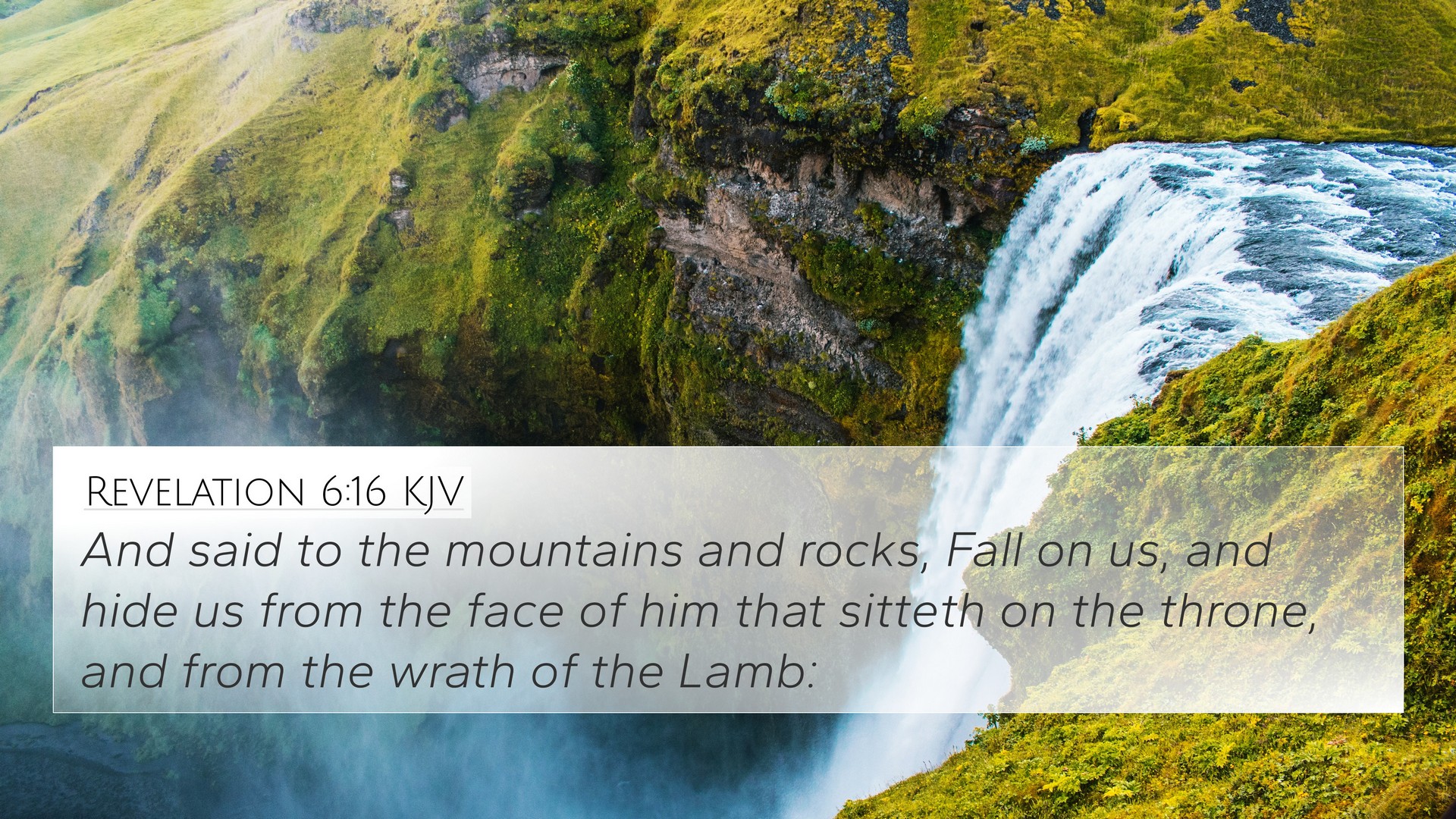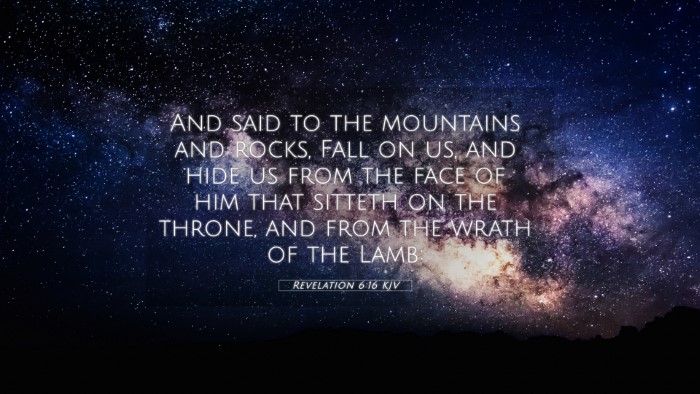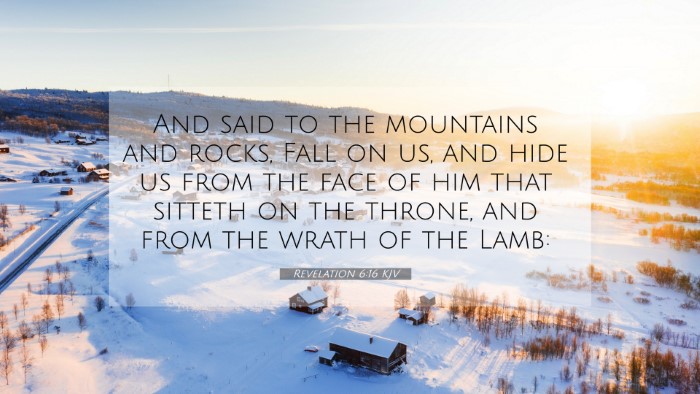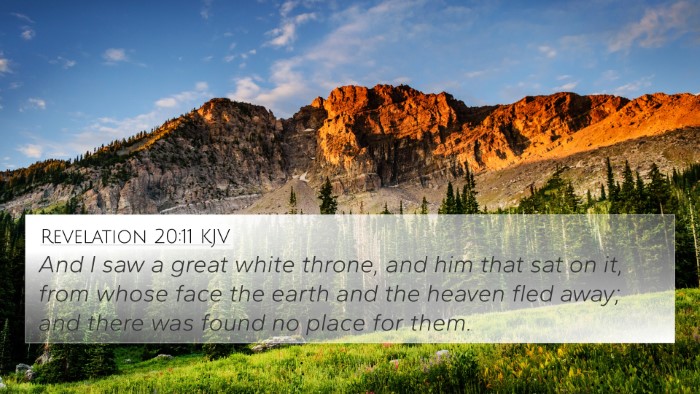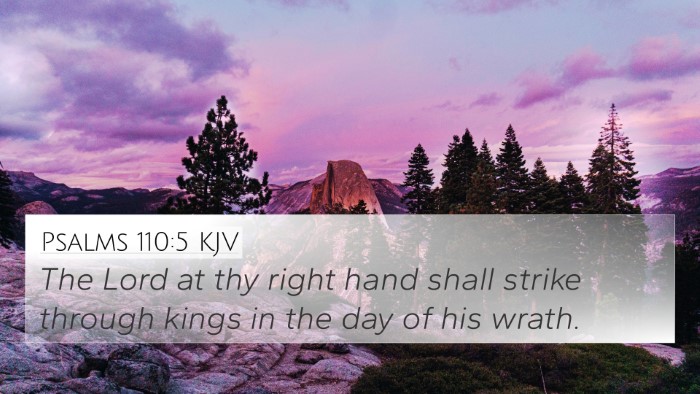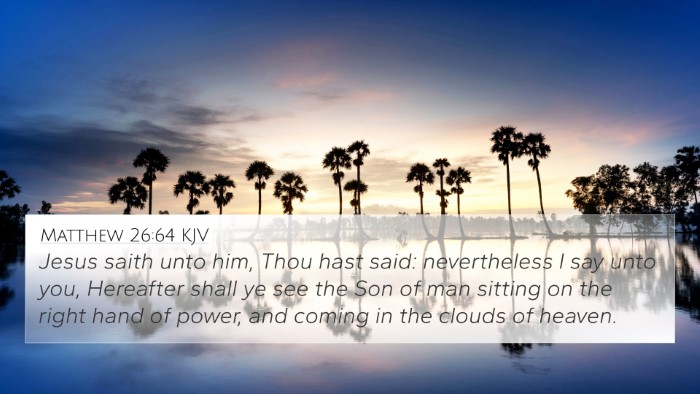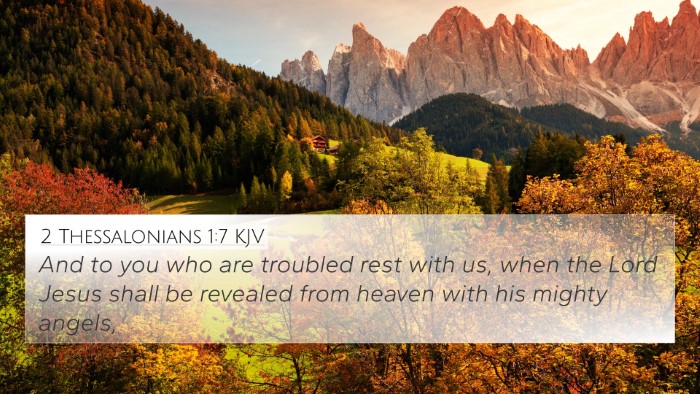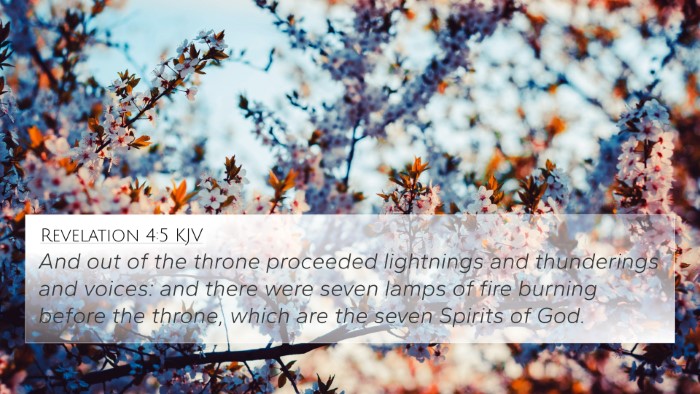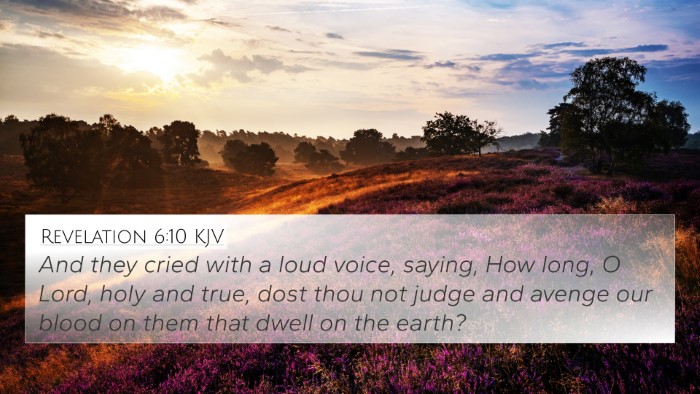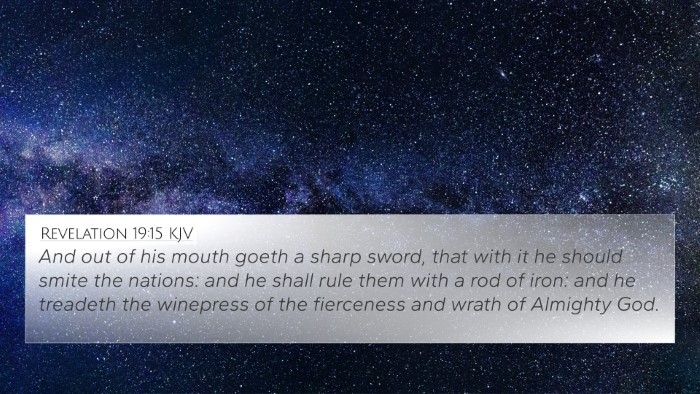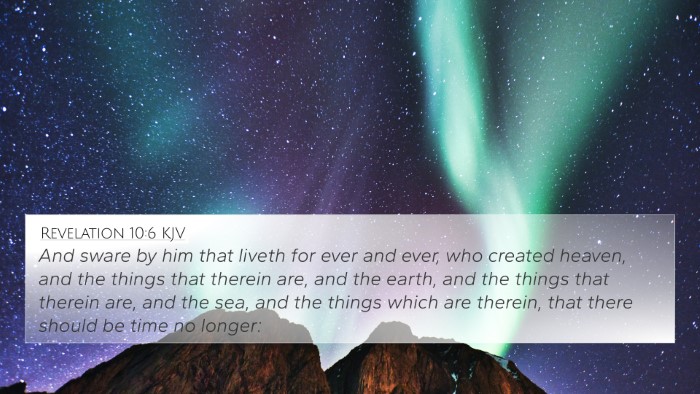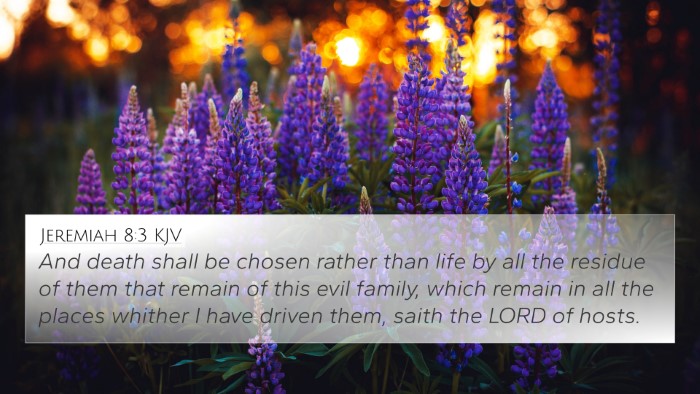Meaning of Revelation 6:16
Revelation 6:16 states: "And said to the mountains and rocks, Fall on us, and hide us from the face of him that sitteth on the throne, and from the wrath of the Lamb." This verse profoundly illustrates the terror and despair that characters experience during divine judgment, emphasizing their desire to escape the presence of God and the Lamb. The weight of judgment is palpable as they recognize their own unworthiness.
Context of Revelation 6:16
To fully grasp this verse, it is essential to consider its context within the Book of Revelation. This book chiefly deals with the end times, focusing on the final judgment and the ultimate sovereignty of God. As the seals are opened, the catastrophic events that unfold represent the fulfillment of prophetic warnings and the culmination of God’s plan for humanity.
Combined Insights from Commentaries
-
Matthew Henry: Henry explains that the imagery of seeking refuge in mountains and rocks symbolizes the futility of escaping God's judgment. It reflects mankind's acknowledgment of their sins and the impending wrath of God, a theme central to human repentance and divine justice.
-
Albert Barnes: Barnes notes the stark contrast between the righteous and the wicked; for the righteous, the presence of the Lamb brings hope, while for the wicked, it instills terror. The verse underlines the concept of divine wrath being a rightful response to human sinfulness, emphasizing the urgent need for repentance.
-
Adam Clarke: Clarke focuses on the psychological aspect portrayed in this verse. The plea to the mountains indicates a profound fear of divine judgment, showing how the deliverance that humanity often seeks during catastrophic times is ultimately found in God alone, even if they do not recognize it.
Key Themes and Interpretations
Within Revelation 6:16, several themes emerge that are pivotal for understanding its importance in the biblical narrative:
- Divine Judgment: This verse resonates with the theme of ultimate judgment, reflecting humanity’s desperate recognition of their sinful state and coming accountability before God.
- Repentance and Fear: There is a strong element of fear intertwined with the recognition of God’s wrath. The terrifying realization that comes with understanding one's standing before God can lead to sincere repentance.
- The Sovereignty of God: The verse accentuates God's sovereign right to judge. It drives home the point that His authority is unassailable, even amid human rebellion and disobedience.
Cross-References for Revelation 6:16
This verse can be cross-referenced with several other biblical passages that echo similar themes of judgment and the need for repentance:
- Matthew 24:30 - "Then will appear in heaven the sign of the Son of Man..." - Reflecting the same forthcoming judgment.
- Luke 23:30 - "Then shall they begin to say to the mountains, Fall on us; and to the hills, Cover us." - Here, Jesus foretells a similar plea for death to escape wrath.
- Revelation 6:15 - The preceding verse illustrates the kings and mighty men also hiding from the wrath.
- Isaiah 2:19 - "And they shall go into the holes of the rocks, and into the caves of the earth..." - An Old Testament reflection of similar imagery.
- Revelation 14:10 - The judgment leading to the tormented state of those who reject God.
- Romans 2:5 - The build-up of wrath against unrepentant people.
- Hebrews 10:31 - "It is a fearful thing to fall into the hands of the living God." - Further emphasizing the consequences of ignoring divine authority.
- Revelation 20:11 - "And I saw a great white throne, and him that sat on it..." - A future event of judgment.
- Joel 2:10 - The Earth trembling at the coming of the Lord, linking to the fear of the Day of the Lord.
- Zephaniah 1:15 - The day of the Lord described as a day of wrath and distress.
Practical Applications
This verse and its themes of judgment and the fear of the Lord serve practical applications for believers today:
- Encouragement to Repent: Understanding the gravity of sin should encourage individuals to seek repentance and reconciliation with God.
- Awareness of Accountability: It reminds believers of their accountability to God and motivates them to lead lives aligned with God’s will.
- Strength in Faith: For those who are in Christ, this fear can transition into awe and reverence, prompting a stronger faith and reliance on God's grace.
Conclusion
Revelation 6:16 is a powerful reminder of the fear of the Lord and the reality of divine judgment. As believers seek to understand the connections between this verse and others, they are encouraged to delve deeper into the themes of repentance and the hope found in Christ. Utilizing tools for Bible cross-referencing can aid in comprehensively studying how these scriptures relate.
